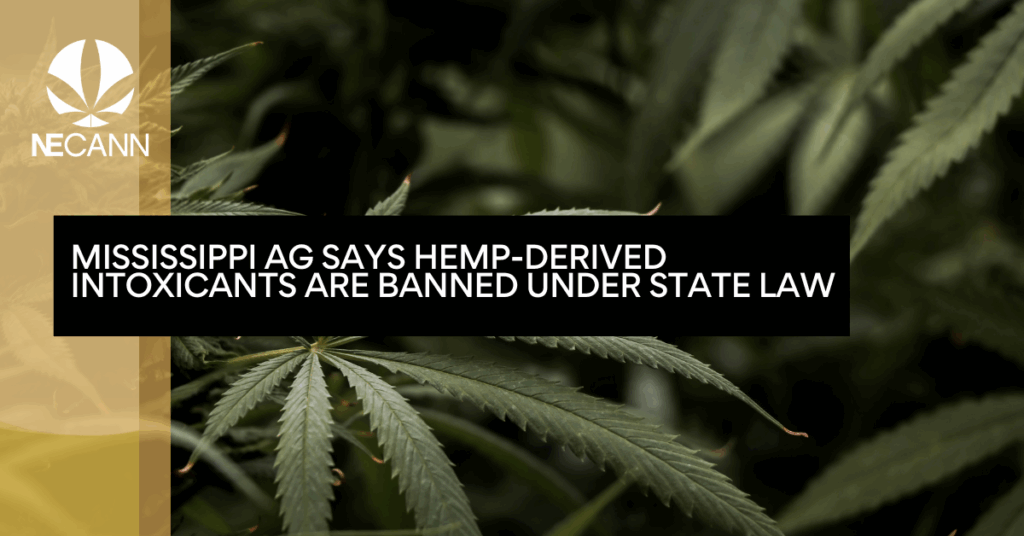In a recent letter to Mississippi state Rep. Lee Yancey (R), Attorney General Lynn Fitch (R) clarified that intoxicating hemp-derived products not explicitly approved by the FDA are considered prohibited under Mississippi’s Uniform Controlled Substances Law. The statement adds new layers of complexity to the legal status of hemp products in the state, particularly those intended for human consumption outside of the state’s medical framework.
Fitch emphasized that only products compliant with the Mississippi Medical Cannabis Act are legal to possess, produce, or distribute. “Except for products possessed in strict accordance with the provisions of the Mississippi Medical Cannabis Act, the possession – with intent to sell, barter, transfer, manufacture, distribute or dispense – of a product derived from the hemp plant designed for human ingestion and/or consumption that is not approved by the United States FDA is prohibited,” she wrote.
The letter, however, stopped short of offering an official legal opinion on whether such products could be legally possessed under federal law. The 2018 federal Farm Bill legalized hemp cultivation and certain derivatives containing less than 0.3% delta-9 THC. That federal framework has led to a booming market of hemp-derived products, including delta-8 and other minor cannabinoids, that exist in a legal gray area at the state level.
Yancey had requested clarification after expressing concern over the widespread availability of hemp-derived products in Mississippi stores, particularly those marketed as edibles or vapes. In her response, Fitch acknowledged that Mississippi law does not directly address these products outside of the medical program.
“Mississippi law does not specifically address the possession or sale of products derived from the hemp plant designed for human ingestion and/or consumption,” she noted. “However, as implied by your questions, the Mississippi Medical Cannabis Act … allows for the sale and possession of medical cannabis products, including edible cannabis products.”
While the state does technically allow for hemp cultivation, the Mississippi Department of Agriculture and Commerce currently lacks the funding to implement a regulatory program. As a result, licensing falls under the federal U.S. Department of Agriculture. This regulatory gap has led to confusion about enforcement, especially as hemp-derived intoxicants have proliferated in convenience stores and smoke shops statewide.
Earlier this year, Rep. Yancey sponsored a bill aimed at banning intoxicating hemp products altogether. However, that legislation was never brought to a vote and expired when the Mississippi Legislature adjourned in April.
Fitch’s recent comments are likely to reignite the debate over how to regulate the growing hemp industry in Mississippi, particularly given the state’s ongoing rollout of its medical cannabis program. While her letter isn’t a formal opinion, it signals a strong stance from the state’s top legal authority—one that could influence future legislation or enforcement.
For now, Mississippi businesses and consumers remain in limbo, navigating an unclear regulatory landscape where federal allowances and state prohibitions appear to be on a collision course.



